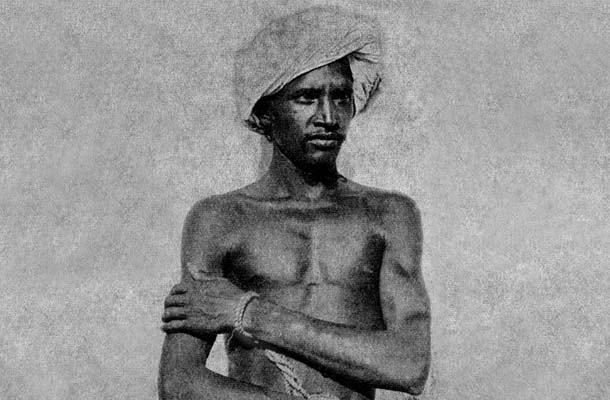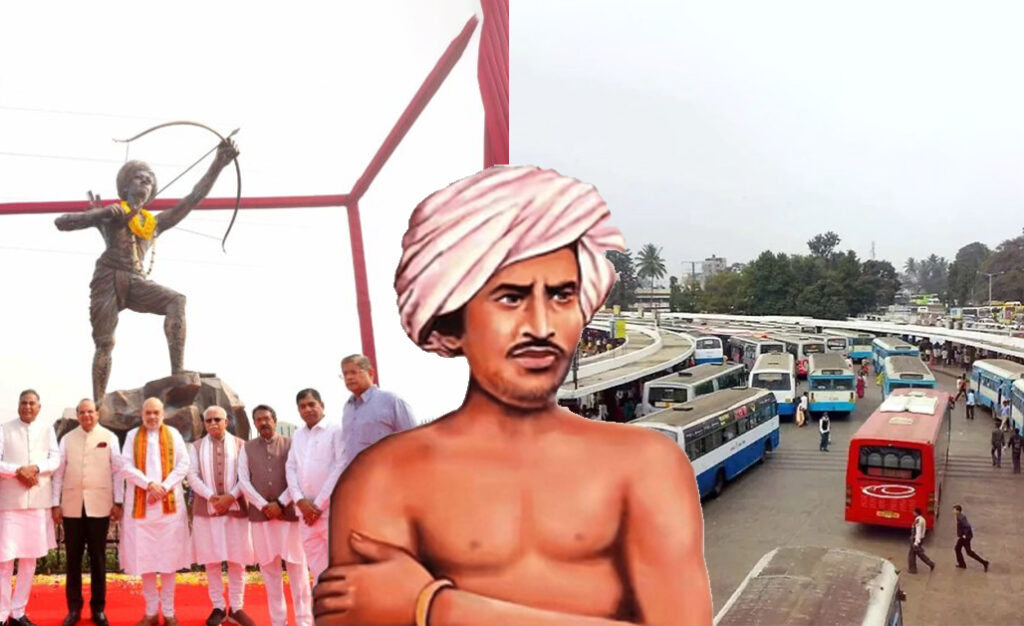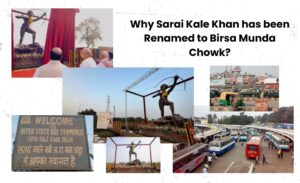Sarai Kale Khan is a well-known area in Delhi but has been renamed Birsa Munda Chowk to honor one of India’s tribal heroes, Birsa Munda. This change is part of a more significant effort to recognize essential historical figures often overlooked. Let’s understand who Birsa Munda was, why this change happened, and what it means for all of us.
Table of Contents
Who Was Birsa Munda?
Birsa Munda was a tribal leader and freedom fighter from Jharkhand. Born in 1875, he played a major role in standing up against the British and fighting for the rights of tribal communities.

- He led a famous movement called Ulgulan (The Great Rebellion) to protect tribal land and culture.
- He also spoke out against unfair rules and practices by landlords and the British.
- Even though he passed away at the young age of 25, his bravery made him a symbol of resistance and pride for tribal people.
Birsa Munda is remembered every year on November 15, celebrated as Birsa Munda Jayanti.
Why Was the Name Changed to Birsa Munda Chowk?
The government renamed Sarai Kale Khan to Birsa Munda Chowk to honor the great leader Birsa Munda. Tribal leaders like Birsa Munda have played a significant role in India’s history, but their contributions are often unknown.
- Highlighting Tribal Heroes: The new name helps bring attention to Birsa Munda’s story and inspires people to learn about his fight for justice.
- Celebrating Diversity: Delhi, as India’s capital, represents people from all backgrounds. Renaming a major landmark after a tribal hero shows respect for India’s diverse cultures and histories.

What Was Sarai Kale Khan Known For?
Sarai Kale Khan is an essential area in Delhi. It is a Major bus terminal connecting Delhi to other states and a location close to Hazrat Nizamuddin Railway Station and the Delhi Metro.
The old name, Sarai Kale Khan, had its historical significance, but the exact origin of the name isn’t apparent. Renaming it to Birsa Munda Chowk gives the place a new and meaningful identity.
How Are People Reacting to the New Name?
Whenever a place is renamed, people have mixed feelings about it, like Positive Reactions, Concerns and Negative.
- Tribal communities, especially in states like Jharkhand and Odisha, are happy about the change.
- Many believe this is an excellent way to give tribal leaders the recognition they deserve.
- Some locals in Delhi feel nostalgic about the old name.
- Practical challenges include updating maps, signboards, and travel guides to reflect the new name.
Renaming Landmarks in India
The renaming of Sarai Kale Khan is part of a more significant trend across India to rename places after historical and cultural figures. Some examples include:
- Allahabad was renamed Prayagraj to reflect its historical roots.
- Race Course Road in Delhi was renamed Lok Kalyan Marg to emphasize a more inclusive identity.
Such changes are made to honor India’s culture, history, and unsung heroes. But sometimes it is not Necessary but is still made for political benefits, or some are made out of wish. But the new name, Birsa Munda Chowk, brings with it some changes:
- Increased Awareness: People may now learn more about who Birsa Munda was and why he’s important.
- Cultural Pride: It’s a way to celebrate the role of tribal communities in India’s history.
- Practical Challenges: Signboards, maps, and official documents must be updated, which might take some time.
Renaming Sarai Kale Khan to Birsa Munda Chowk is not just about changing a name; it’s about recognizing a hero who stood up for his people and fought for justice.
It’s a way of keeping his legacy alive and teaching future generations about his courage and determination.
While it may take time for people to adjust to the new name, the change is a step toward celebrating India’s rich and diverse history.

